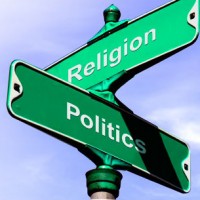
William Galston and Charles Taylor
« Do Religion and Conscience Limit Political Authority? »
March 13th, 5:00-8:00 pm.
Bronfman 423, 1001 Sherbrooke, McGill
Politics, Religion, Jewish Law and Philosophy: An Evening in Memory of David Hartman.
Rabbi Professor David Hartman, who died a year ago, was a major contemporary Jewish philosopher and educator, and the founder of the influential Shalom Hartman Institute in Jerusalem. Though Hartman became world famous in Israel, his career began in Montreal where he served as Rabbi of Congrgegation Tifereth Beth David Jerusalem from 1960-1971 and was the founder of Montreal’s Akiva School. Hartman had a special relationship with McGill, serving as the first teacher of Jewish philosophy in the then fledgling Jewish Studies Program and receiving his PhD from McGill’s Department of Philosophy in 1973. The Department of Jewish Studies therefore feels honored to sponsor this evening in tribute to Hartman’s memory and his life work, where leading scholars, all of whom knew Hartman personally, will be speaking on topics of pressing relevance that were close to his heart.
Date & Time: Thursday, March 13 at 5:00-8:00 pm
Location: Bronfman Building, Room 423, (1001 Sherbrooke)
Refreshments will be served. All welcome.
Do Religion and Conscience Limit Political Authority
Religious conscience, invoked by individuals and institutions on issues from military service to health care benefits, raises deep issues about the nature of political authority. The emergence of the revealed religions raised the possibility that non-political sources of authority could challenge and limit the competence of political rulers. James Madison’s “Memorial and Remonstrance” advanced precisely that idea, which also made its way into his draft of what became the First Amendment to the US Constitution. In his talk, William A. Galston will explore two questions: first, whether Christianity’s “two swords” concept has a counterpart in Jewish political thought; and second, how this concept influences the theory and practice of liberal democracy.
William A. Galston holds the Ezra Zilkha Chair in the Brookings Institution’s Governance Studies Program, where he serves as a Senior Fellow. He is also College Park Professor at the University of Maryland. Prior to January 2006 he was Saul Stern Professor and Acting Dean at the School of Public Policy, University of Maryland, director of the Institute for Philosophy and Public Policy, founding director of the Center for Information and Research on Civic Learning and Engagement (CIRCLE), and executive director of the National Commission on Civic Renewal, co-chaired by William Bennett and Sam Nunn. A participant in six presidential campaigns, he served from 1993 to 1995 as Deputy Assistant to President Clinton for Domestic Policy.
Galston is the author of eight books and more than 100 articles in the fields of political theory, public policy, and American politics. His most recent books are Liberal Pluralism (Cambridge, 2002), The Practice of Liberal Pluralism (Cambridge, 2004), and Public Matters (Rowman & Littlefield, 2005). A winner of the American Political Science Association’s Hubert H. Humphrey Award, he was elected a Fellow of the AmericanAcademy of Arts and Sciences in 2004.
Galston has appeared on all the principal television networks and is frequently interviewed on NPR. He writes a weekly column for the Wall Street Journal.
Response by Professor Charles Taylor
One of the most important thinkers Canada has produced, Charles Taylor taught at McGill from 1961 to 1997, and is now a professor emeritus. A rare philosopher who attempts to put his ideas into practice, his writings have covered a range of subjects that include artificial intelligence, language, social behavior, morality, and multiculturalism. His magisterial works Sources of the Self (1989) and A Secular Age (2007) have been hailed for their depth, breadth, and erudition. A winner of the prestigious Templeton Prize and Japan’s Kyoto Prize for arts and philosophy, Taylor is also a member of the Order of Canada.
Rabbi David Hartman: Subject to The Law without Being Trapped by The
Law Rabbi Asher Lopatin is the president of Yeshivat Chovevei Torah Rabbinical School, the leading modern and open Orthodox rabbinical school in America, with nearly 100 alumni and 40 current students in a full-time, four-year course of study.
For 18 years he served as the spiritual leader of Anshe Sholom B’nai Israel Congregation, a modern Orthodox synagogue in Chicago. He received his ordination from Rav Ahron Soloveichik and Yeshivas Brisk in Chicago, and from Yeshiva University in New York as a Wexner Graduate Fellow. Rabbi Lopatin holds an M. Phil. in Medieval Arabic Thought from Oxford University where he also did doctoral work on Islamic Fundamentalist attitudes toward Jews. He won both Rhodes and Truman Scholarships. He is the author of numerous scholarly and popular articles in several books and journals and has been the co-chair of the Muslim-Jewish Community Building Initiative of the Jewish Council on Urban Affairs.
Response by Professor Lawrence Kaplan
Lawrence J. Kaplan received his Ph.D. from Harvard University and his rabbinical ordination from Rabbi Isaac Elchanan Theological Seminary. He has taught Rabbinics and Jewish Philosophy in the Department of Jewish Studies of McGill University since 1972. In the spring of 2013 he held a Polonsky Fellowship at the Oxford Centre for Hebrew and Jewish Studies.
Kaplan is a leading scholar of the thought of David Hartman’s teacher, Rabbi Joseph B. Soloveitchik. His overview of Soloveitchik’s thought appeared in the Cambridge Companion to Modern Jewish Philosophy and his essay « Ethical Theories of Abraham Isaac Kook and Joseph B. Soloveitchik, » in The Oxford Handbook of Jewish Ethics and Morality. His essay « Rabbi Soloveitchik’s Lonely Man of Faith in Contemporary Modern Orthodox Jewish Thought, » deals extensively with Hartman’s multiple readings of Soloveitchik’s classic essay.



